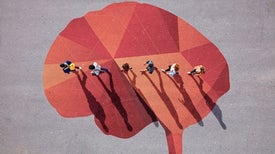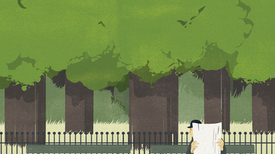
Your Brain, Free Will and the Law
Stanford University neuroscientist Robert Sapolsky talks about human behavior, the penal system and the question of free will.

Robert M. Sapolsky is a professor of biological sciences, neurology and neurological sciences at Stanford University and a research associate at the National Museums of Kenya. In his laboratory work, he focuses on how stress can damage the brain and on gene therapy for the nervous system. He also studies populations of wild baboons in East Africa, trying to determine the relation between the social rank of a baboon and its health.

Stanford University neuroscientist Robert Sapolsky talks about human behavior, the penal system and the question of free will.

The growing gulf between rich and poor inflicts biological damage on bodies and brains

Our drive to exceed our evolutionary limits sets us apart from other beasts

New studiessuggest that the stress of being poor has a staggeringly harmful influence on health

A little stress sharpens memory. But after prolonged stress, the mental picture isn't pretty

How will we feel when biology can name what makes each of us who we are?

New insights into the neurology of anxiety and depression—and how stress feeds them

Time for a bit of humility. Some microorganisms can manipulate neural circuitry better than we can

... who invented the science of love

Inserting genes into brain cells may one day offer doctors a way to slow, or even reverse, the damage from degenerative neurological disease

Studies of free-ranging baboons in an African reserve are helping to explain why human beings can differ in their vulnerability to stress-related diseases
Support science journalism.

Thanks for reading Scientific American. Knowledge awaits.
Already a subscriber? Sign in.
Thanks for reading Scientific American. Create your free account or Sign in to continue.
Create Account